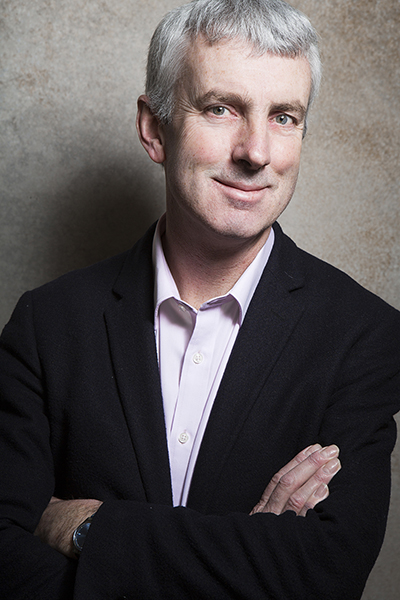PEDLS Julian Allwood, FREng — Lecture
| Event Date: | November 30, 2023 |
|---|---|
| Speaker: | Julian Allwood, FREng, Professor of Engineering and the Environment at the University of Cambridge |
| Time: | 10:30 – 11:30 AM EST |
| Location: | Virtual |
| Priority: | No |
| College Calendar: | Show |

Abstract
Engineers like making “things," and most commonly we expect these things to be brought about by markets. Either what we have made offers new benefits or it reduces costs. As a result, customers will pay for it. However, we also have care for “good things” - for example, as captured in the United Nations Sustainable Development Goals. While we can, sometimes, make things that help with these goals, they are not generally happening at the scale and rate we would like. In fact, if we reduce the goals to the three major priorities of dealing with climate change, conserving species and addressing inequality, it’s clear that we are failing to make good things happen. Despite all the technological options that are discussed for addressing these three humanitarian goals, they are not scaling up, and we can predict with confidence that most of them will never scale because we do not have the resources to deliver them. Bringing about these good things therefore requires that, as engineers, we step outside our usual boundaries of comfort to engage in a societal debate about welfare. The top 3% of wealthy people on the planet are the drivers of most of the harmful impacts we wish to address, so we have a crucial role to play in rethinking the aspirations of welfare to support the delivery of good things at scale and pace.
Biography
Julian Allwood is professor of engineering and the environment at the University of Cambridge and directs the Use Less Group. Uniquely, his research aims to articulate a pathway to zero emissions based on technologies that already exist at scale. This directs attention to eliminating process emissions and efficient electrification. A particular focus of his research is to identify opportunities for business growth compatible with real zero emissions. In 2022, this has led to founding three spin-out companies, including the world's first zero-emissions process for producing Portland cement, with a pipeline of other opportunities in development.
From 2019-24 he is director of UK FIRES – a 5m industry and multi-university programme aiming to explore all aspects of Industrial Strategy compatible with delivering zero emissions by 2050. ‘Absolute Zero’, the first publication of UK FIRES continues to attract widespread attention including a full debate in the House of Lords in Feb 2020, and has led to a string of other reports, research and impact.
Allwood was a Lead Author of the 5th Assessment Report of the Intergovernmental Panel on Climate Change (IPCC) with a focus on mitigating industrial emissions. He is an Honorary Fellow of the Institution of Materials, Minerals and Mining, a Fellow of the International Academy of Production Engineering (CIRP) and served as chairman of its metal forming section. He is a member of the UK’s Energy Research Partnership and for ten years was joint editor-in-chief of the Journal of Materials Processing Technology. He was elected as a Fellow of the Royal Academy of Engineering in 2017 and in 2021 was awarded the triennial Japan Society for Technology of Plasticity International Prize for Research and Development in Precision Forging.
Allwood's career began with 10 years work for Alcoa on flat rolling, before academic positions at Imperial College and Cambridge. From 2009-13, he held an EPSRC Leadership Fellowship to explore Material Efficiency as a climate mitigation strategy – delivering material services with less new material. This led to publication in 2012 of the book “Sustainable Materials: with both eyes open,” which can be read online at www.withbotheyesopen.com, and was listed by Bill Gates as “one of the best six books I read in 2015.”
Hosted by the College of Engineering, Environmental and Ecological Engineering and the Institute for a Sustainable Future.
